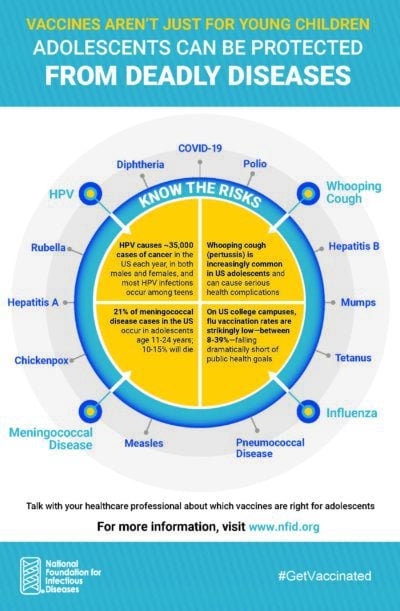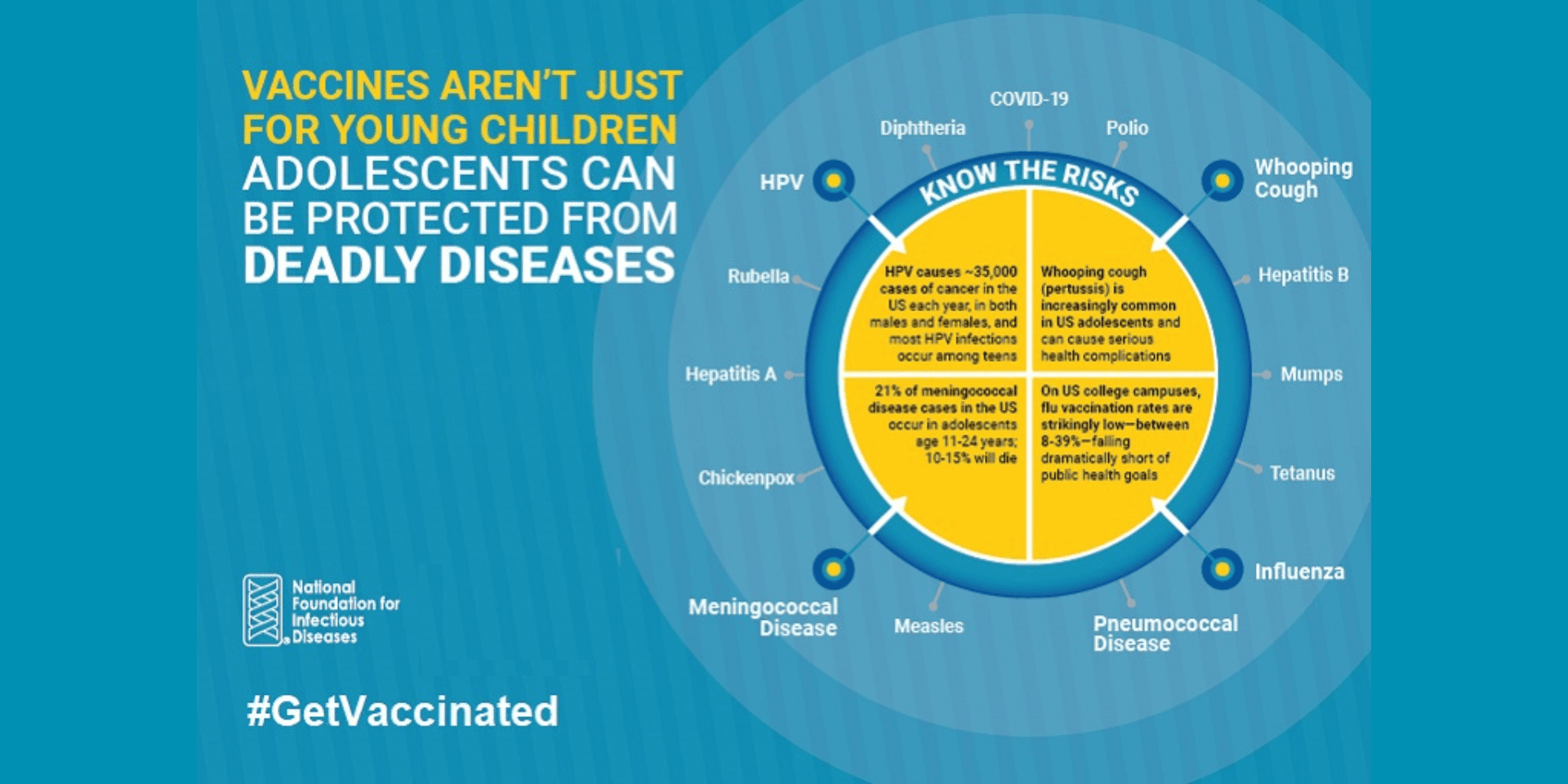
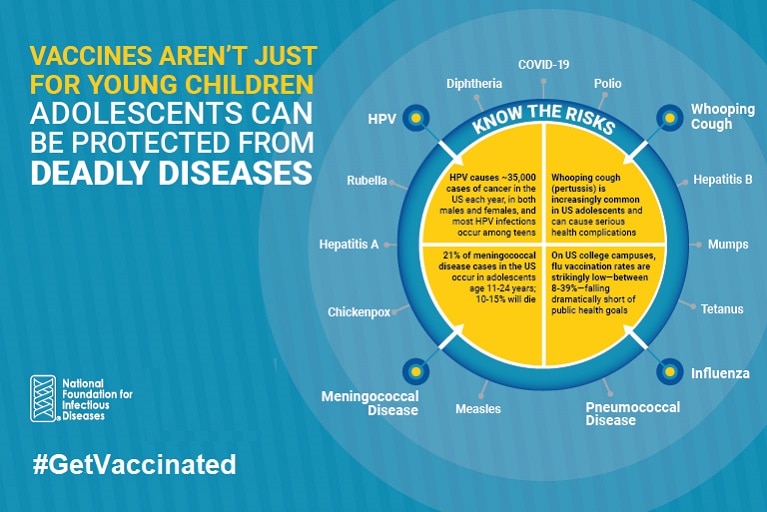 The Centers for Disease Control and Prevention (CDC) recommends vaccinations from birth to adulthood to provide a lifetime of protection. Yet many adolescents are not vaccinated as recommended, leaving them unnecessarily vulnerable. International Adolescent Health Week (March 20-26, 2022) is a perfect time to make sure that pre-teens and teens are up to date on all recommended vaccines.
The Centers for Disease Control and Prevention (CDC) recommends vaccinations from birth to adulthood to provide a lifetime of protection. Yet many adolescents are not vaccinated as recommended, leaving them unnecessarily vulnerable. International Adolescent Health Week (March 20-26, 2022) is a perfect time to make sure that pre-teens and teens are up to date on all recommended vaccines.
Read on to learn more about some of the diseases that vaccines can help protect adolescents against …
 COVID-19: Although COVID-19 tends to be milder in adolescents compared with adults, it can make some young people very sick and can require hospitalization. In some cases, complications from COVID-19 can lead to death or post-COVID conditions. Teens and pre-teens who have underlying medical conditions are at higher risk for severe illness from COVID-19. Vaccinating adolescents can help protect family members, including siblings who are not eligible for vaccination and other family members who may be at increased risk. In the US, COVID-19 vaccination is recommended for everyone age 6 months and older.
COVID-19: Although COVID-19 tends to be milder in adolescents compared with adults, it can make some young people very sick and can require hospitalization. In some cases, complications from COVID-19 can lead to death or post-COVID conditions. Teens and pre-teens who have underlying medical conditions are at higher risk for severe illness from COVID-19. Vaccinating adolescents can help protect family members, including siblings who are not eligible for vaccination and other family members who may be at increased risk. In the US, COVID-19 vaccination is recommended for everyone age 6 months and older.
Influenza (flu): Flu is not just a common cold—it is a contagious viral infection that can cause mild to severe symptoms and life-threatening complications, including death, even in healthy children and adults. Flu vaccines are updated annually to protect against the influenza viruses research indicates are most likely to circulate during the upcoming season. Flu vaccines can vary in how well they work, but even in cases when flu vaccination does not prevent infection completely, it can reduce the severity and duration of disease and can help prevent serious complications. Everyone age 6 months and older should receive an annual flu vaccine.
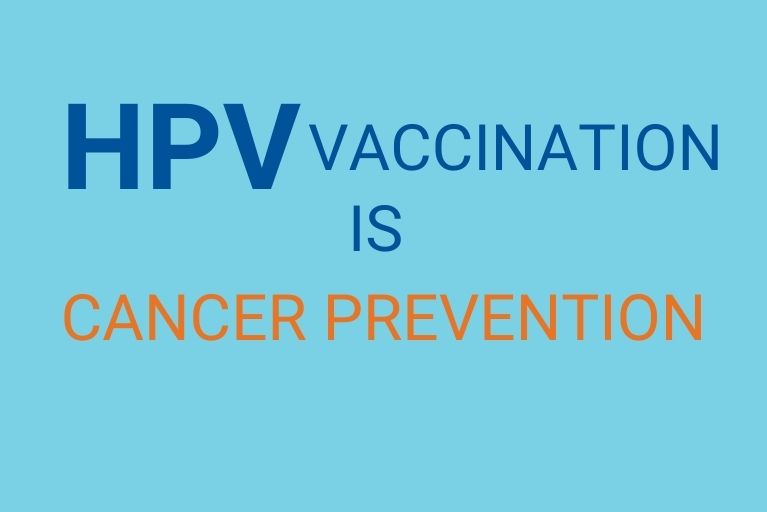 Human papillomavirus (HPV): HPV is so common that about 4 out of 5 unvaccinated people will get HPV at some point in their lives. Although most infections go away on their own in a few years, HPV infections that do not go away can lead to cancer. HPV causes almost all cervical cancer in the US and can also cause cancer of the vulva, vagina, penis, anus, mouth, and throat. HPV vaccination is recommended for all adolescents, starting at age 11 or 12 years.
Human papillomavirus (HPV): HPV is so common that about 4 out of 5 unvaccinated people will get HPV at some point in their lives. Although most infections go away on their own in a few years, HPV infections that do not go away can lead to cancer. HPV causes almost all cervical cancer in the US and can also cause cancer of the vulva, vagina, penis, anus, mouth, and throat. HPV vaccination is recommended for all adolescents, starting at age 11 or 12 years.
Meningococcal disease: Meningococcal disease is a serious bacterial illness that can lead to severe swelling of the tissues surrounding the brain and spinal cord (meningitis) or infection of the bloodstream. Even with treatment, approximately 1 out of every 10 people who get meningococcal disease will die, and of those who survive, up to 20 percent will suffer serious and permanent complications including brain damage, kidney damage, hearing loss, and amputation of arms, legs, fingers, or toes. Two types of meningococcal vaccines (MenACWY and MenB) provide protection against the five serogroups that cause most meningococcal disease in the US (serogroups A, B, C, W, and Y). CDC recommends MenACWY for all preteens at age 11-12 years and all teens at age 16 years (booster dose). Adolescents and young adults (age 16-23) may also receive a MenB vaccine (the preferred age is 16-18 years).
Tdap (tetanus, diphtheria, pertussis): Tetanus, commonly called lockjaw, is a bacterial disease that affects the nervous system. In severe cases, tetanus infections can lead to death. Diphtheria is an acute bacterial disease that usually affects the tonsils, throat, nose, and/or skin. Diphtheria can lead to breathing problems, heart failure, paralysis, and sometimes death. Pertussis (also known as whooping cough) is a highly contagious and serious infection that spreads easily from person to person through coughing and sneezing. The infection causes coughing spells that are so severe that it can be hard to breathe, eat, or sleep. Whooping cough can even lead to cracked ribs, pneumonia, or hospitalization. All 11- to 12-year-olds should receive one dose of Tdap vaccine.
Help Protect Adolescents
Like eating healthy, staying active, and getting regular check-ups, vaccines play a vital role in keeping all of us healthy, including pre-teens and teens. Help the adolescents in your life get a healthy start on adulthood:
- Download the NFID infographic (available in English and Spanish) and talk to a healthcare professional about recommended vaccines for adolescents
- Share 10 Reasons For Teens To Get Vaccinated
To join the conversation and get the latest news on infectious diseases, follow NFID on Twitter, like us on Facebook, follow us on Instagram, visit us on LinkedIn, and subscribe to NFID Updates.
Related Posts

Protecting Children as They Head Back to School
As school gets underway, experts from the National Foundation for Infectious Diseases (NFID) offer insights on childhood immunization
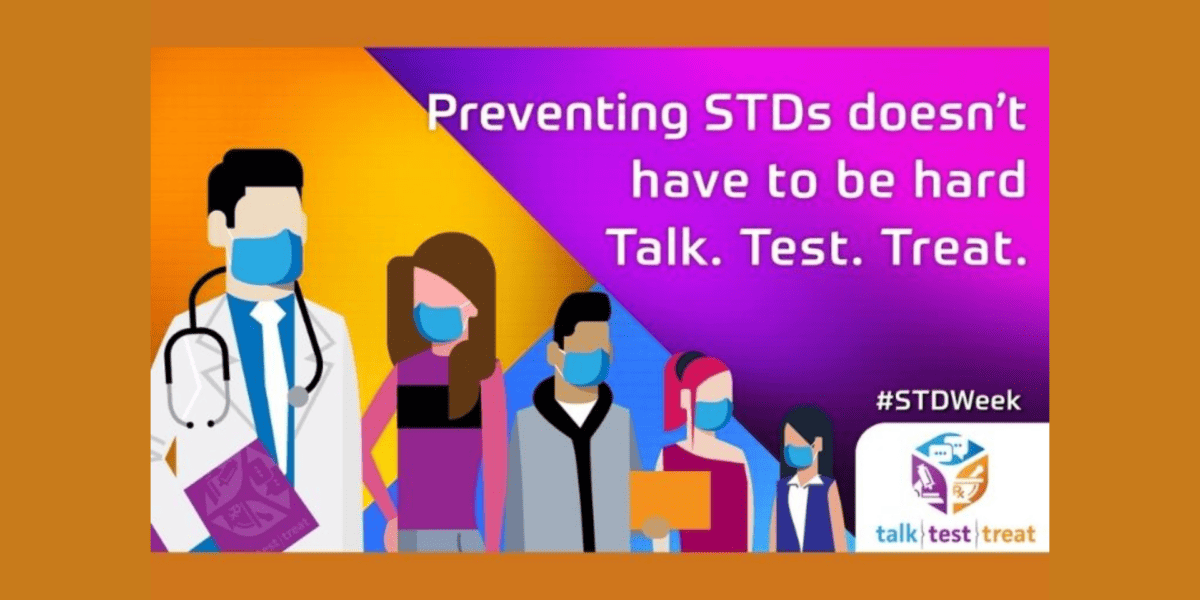
Lifelong Conversations about Sexual Health
Teen Health Week is April 4-10, 2022, and STD Awareness Week is April 10-16, 2022, both of which provide an opportunity for healthcare professionals to begin lifelong conversations with patients about sexual health and the importance of staying up to date on all recommended vaccines …
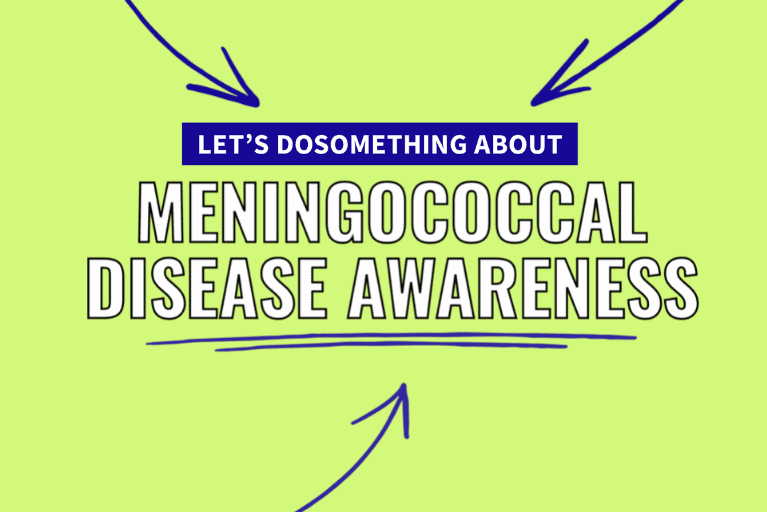
Debunking 5 Common Health Myths
Although the COVID-19 pandemic has clearly demonstrated the importance of public health, the prevalence of medical misinformation online is making it harder than ever for young people to tell the difference between fact and fiction when it comes to protecting their own health

